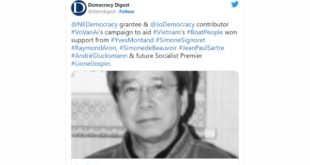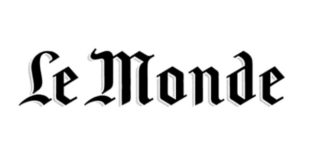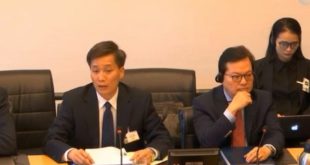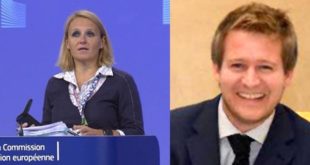* Vietnam defends record, admits individual shortcomings
* Demonstration coincides with rare U.N. scrutiny
(Updates with Vietnam presentation to U.N. Human Rights Council)
GENEVA, May 8 (Reuters) – Vietnam acknowledged some human rights “wrongdoings” in its appearance before a United Nations human rights forum on Friday, but rejected accusations from exiles about its treatment of dissidents and minorities.
Those exiles, backed by a major international human rights group, submitted a report to the U.N. Human Rights Council accusing the Southeast Asian country of quashing press freedom and Internet access in a bid to silence critics.
Their report demanded the release of political prisoners held under “vague national security provisions” of Vietnam’s law, and raised concerns about religious repression, widespread use of the death penalty and coercive birth control practices.
Vietnam defended its record at the 47 member-state forum in Geneva, which is assessing the Vietnamese human rights record under a “universal periodic review”mechanism which will subject all United Nations members to scrutiny.
Pham Binh Minh, Vietnam’s first vice minister of foreign affairs, said Hanoi had made achievements in protecting human rights. Religious activities have increased and ethnic minorities are “participating in an increasingly equal manner in social and political life,” he said.
He acknowledged shortcomings, including “wrongdoings” by some civil servants who had a limited understanding of human rights, but rejected “unfounded reports” about its record.
“Vietnam is still victim of hostile activities like terrorism, sabotage, acts to destabilise the country and infringe upon national security and territorial integrity,” he said. “The ultimate goal is to build a strong country and prosperous people in a just, democratic and advanced society.”
ESPIONAGE CHARGES
The activists’ report says Vietnam’s ruling Communist authorities routinely use charges of espionage to detain “cyber-dissidents” for posting their views on the Internet.
“These crimes, which make no distinction between violent acts such as terrorism and the peaceful exercise of freedom of expression, are punishable by harsh prison terms including life imprisonment,” it said. Seven crimes carry the death penalty.
Penelope Faulkner, executive secretary of the Vietnam Committee on Human Rights, told Reuters: “There are several thousand political prisoners all over the country. They are detained in all sorts of ways including house arrest.”
Vietnamese exiles demonstrated outside the U.N. offices in Geneva, sheltering from the rain under umbrellas, to draw attention to the rare international scrutiny of their homeland.
An administrative detention in Vietnamese law empowers local officials to commit perceived political or religious opponents to mental hospitals or “rehabilitation camps,” the groups said.
Once released, they said former political prisoners are subjected to probationary detention, which puts them under house arrest and constant police surveillance for up to five years.
Faulkner said Vietnam executes an average of 100 people a year, with capital punishment applied for 29 offences ranging from murder to economic crimes and treason.
Repression on religious grounds was also described in the group’s report as widespread, despite freedom of religion being guaranteed in the constitution.
The Unified Buddhist Church of Vietnam, effectively banned since 1981, and ethnic Montagnards — the mainly Christian tribespeople from the Central Highlands who sided with U.S. forces during the Vietnam War — are the main victims, it said.
(Editing by Laura MacInnis)
 Quê Me Quê Me: Action for democracy in Vietnam & Vietnam Committee on Human Rights
Quê Me Quê Me: Action for democracy in Vietnam & Vietnam Committee on Human Rights





